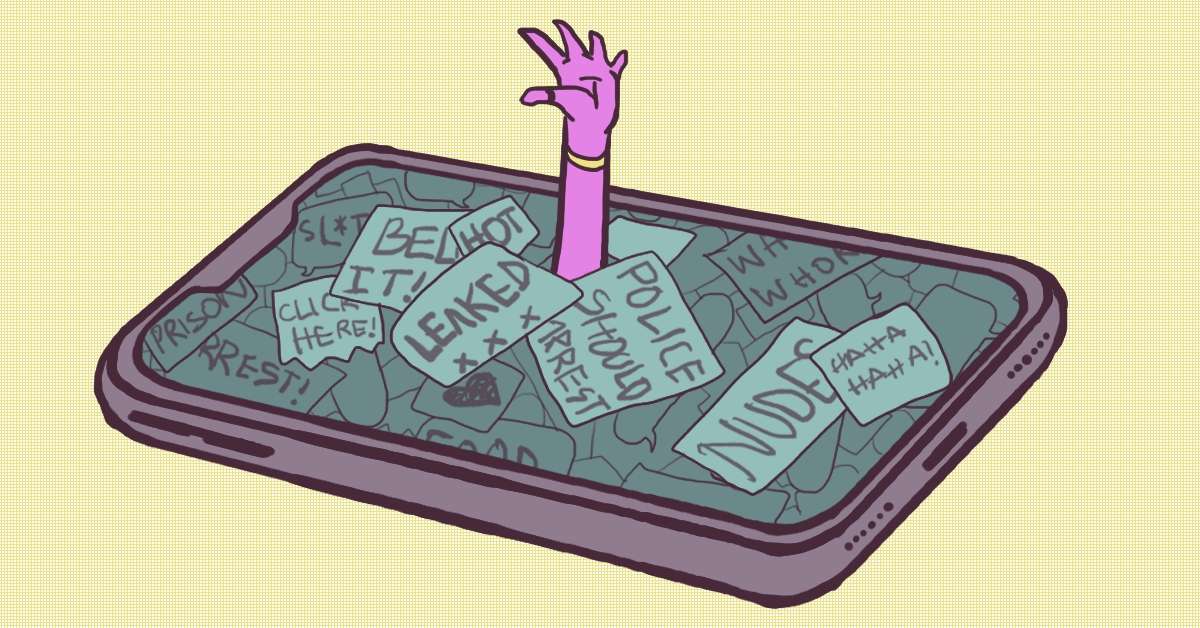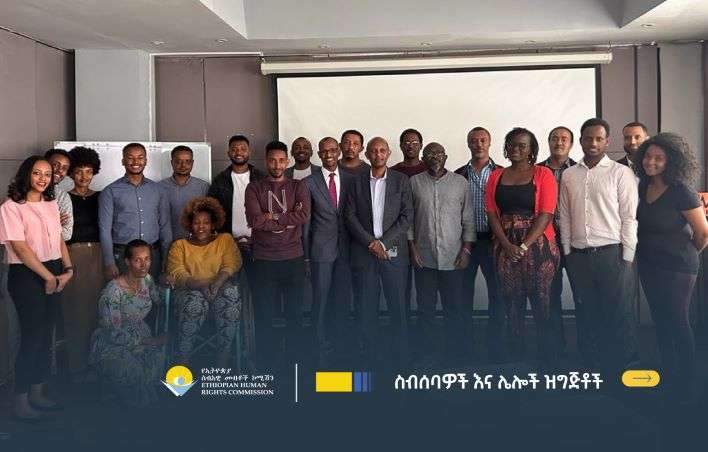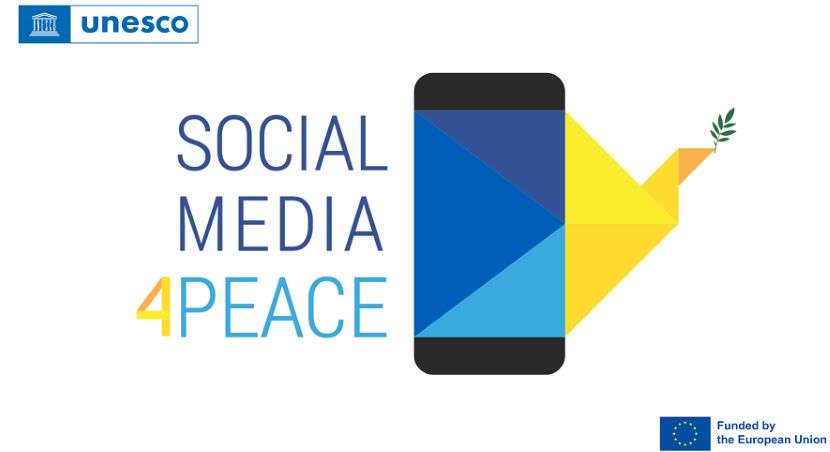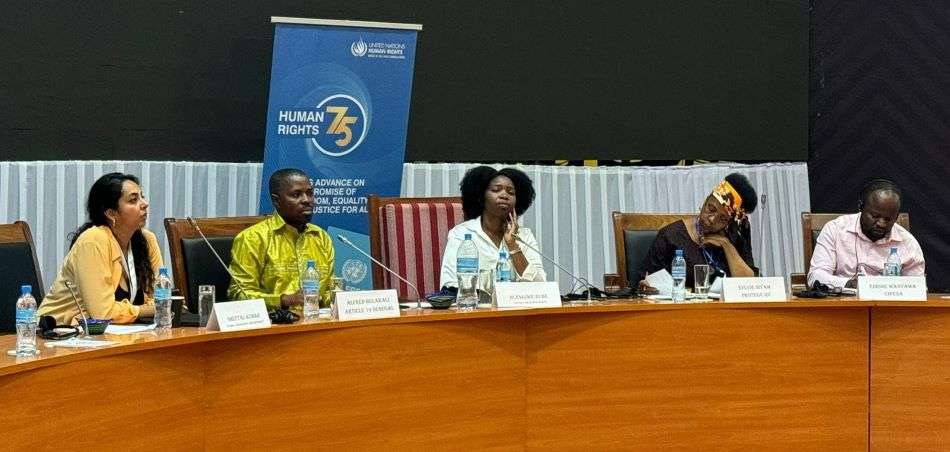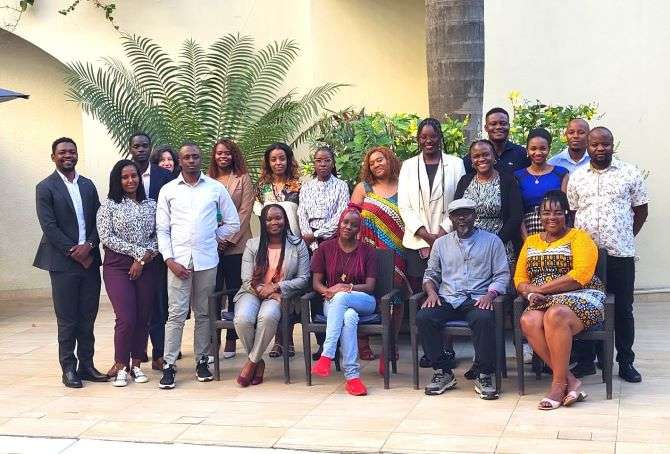By Evelyn Lirri |
Across Africa, the use of Information and Communications Technology (ICT) by women and girls remains low. Yet amidst the low access to digital tools, women, particularly those in public and political spaces, such as human rights defenders (HRDs), bloggers, and journalists, continue to be the primary target of various forms of online violence such as cyberstalking, sexual harassment, trolling, body shaming and blackmail.
According to a 2021 global survey by UNESCO, nearly three-quarters of female journalists have experienced online harassment in the course of their work, forcing many to self-censor. Furthermore, a 2020 report by UN Women found that women in politics and the media were more likely to be victims of technology-based violence as a consequence of their work and public profiles.
Over the years, the Collaboration on International ICT Policy for East and Southern Africa (CIPESA) has documented and pursued interventions aimed at addressing the significant obstacles hindering an increase in women’s participation not only in online spaces but also in the political sphere. A concerning and recurring trend is that, oftentimes, responses to violence against women have prioritised an individual’s responsibility for self-protection rather than systematic or policy actions.
At the Forum on Internet Freedom in Africa 2023 (FIFAfrica23), the National Democratic Institute (NDI), Pollicy, Africtivites, the Women of Uganda Network (WOUGNET), Internews and the Solidarity Centre shared lessons learned from their work implementing multi-stakeholder interventions to address online violence against women. During a panel discussion, it was noted that applying multi-stakeholder interventions that include governments, civil society, technology platforms and media was critical in promoting safe and meaningful participation of women in online spaces. Internews and WOUGNET highlighted the work they have been jointly engaged in through the FemTech project in various African countries, aimed at empowering women human rights defenders to safely participate in digital spaces while promoting equitable access to technology. Through trainings of women human rights defenders, CSOs, policy makers and law enforcers, the project is raining awareness on how women are often impacted by cyber crimes legislations.
In Senegal, AfricTivistes, a network organisation made up of journalists, bloggers and HRDs, has spearheaded public advocacy campaigns on responsible use of the internet. The organisation has conducted gender-inclusive training and capacity-building workshops for journalists, bloggers, public officials and political leaders on how to respond to cyber violence. Aisha Dabo, a Programme Coordinator at AfricTivistes, noted that since 2017, over 700 people in 15 African countries have been reached with these trainings. The organisation also conducts media monitoring of online violence on social media platforms.
Sarah Moulton, NDI’s Deputy Director for Democracy and Technology, highlighted the negative impact that online violence continues to have on women who are actively engaged in politics and political spaces. In Uganda, for instance, a joint report by Pollicy and NDI documented cases of gender-based online violence during the 2021 general elections and found that women and men politicians experienced online violence differently, with women candidates likely to be trolled and body shamed while men were more likely to experience hate speech. This echoed research by CIPESA which analysed the gender dynamics of politics in online spaces in Uganda, including campaigns for presidential, parliamentary, mayoral, and other local government seats during the same elections. The CIPESA research also explored the legal landscape and in similarity to Pollicy and NDI found that although Uganda has enacted a number of laws aimed at improving digital access and rights such as the Computer Misuse Act 2011, the Anti Pornography Act 2014, the Excise Duty (Amendment) Act 2018, most do not address the gender dynamics of the internet such as targeted online gender-based violence, affordability, and the lack of digital skills among women.
Like Africvistes, NDI has engaged in a number of campaigns to document these various forms of violence and make recommendations to address the problem. In 2022, it released a list of interventions that could be adopted globally by technology platforms, governments, civil society and the media to mitigate the impact of online violence against women in politics and hold perpetrators to account.
“Often, the expectation is that the individual is responsible for addressing the issue or for advocating on behalf of themselves. It really needs to involve a lot of actors,” said Moulton.
On its part, the Solidarity Centre has been spearheading a global campaign to end gender-based violence and harassment in the world of work. With the advent of Covid-19, a growing number of women shifted online for employment opportunities, access to services and education, among others. It was highlighted that female platform workers, including influencers, content creators and women who run online retail businesses, continue to face various violations such as sexual harassment and cyberbullying.
Panelists called on governments to ratify the International Labour Organisation (ILO) Convention No. 190 on violence and harassment in the world of work. This global treaty recognises the impact of domestic violence in the workplace, and how women are often disproportionately affected. Currently, the convention has been ratified by 32 countries globally, of which only eight are African.
Journalists attending FIFAfrica23 also shared their encounters with online violence and called for regular digital literacy skills to stay safe online. Alongside the need for enhanced digital literacy, participants also noted the lack of effective reporting mechanisms for cases. Ultimately, it was noted that efforts that shift the burden of blame from victims of online violence against women in Africa need to be more actively pursued, alongside more actionable, collaborative and systematic interventions by governments, law enforcement, and platforms.

